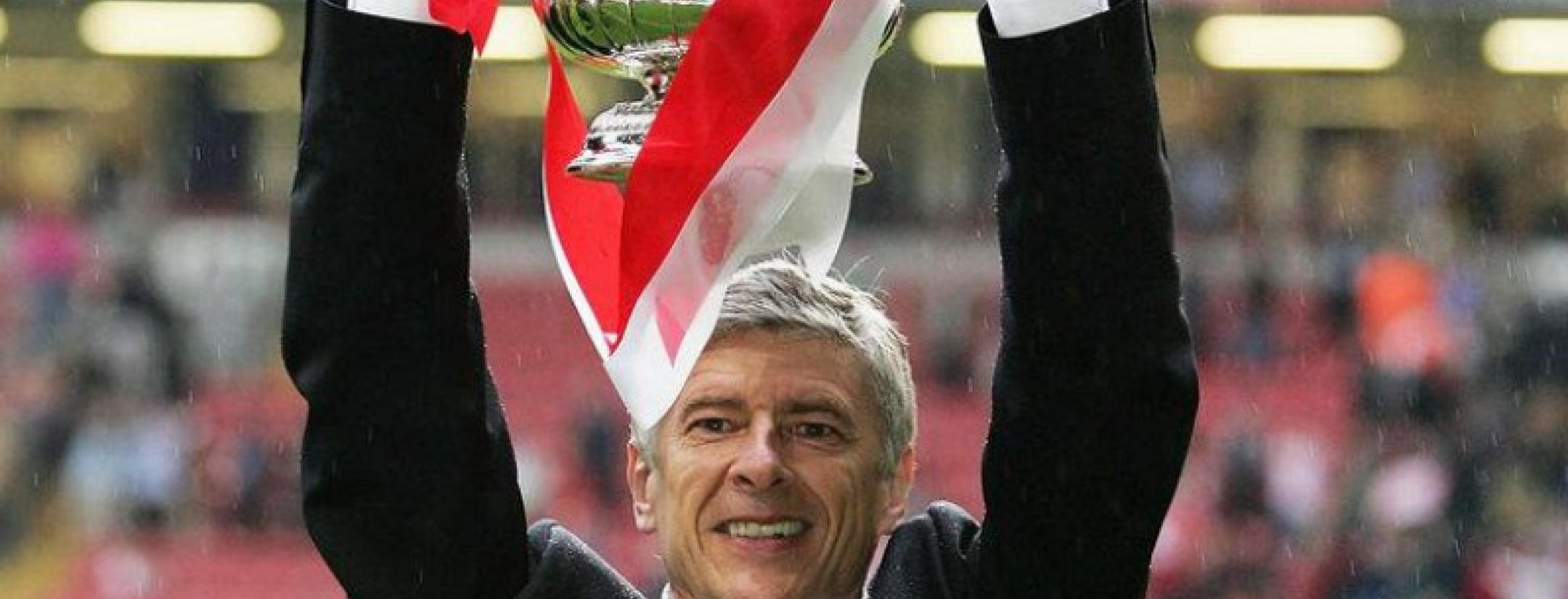Conventional wisdom says that managers must be given time to implant a style and ethos before delivering success to a club. Indeed, an owner's patience is held aloft as evidence of a virtuously run club, while the choppers and changers are vilified as myopic incompetents degrading the very foundations of the beautiful game.
Arsenal and Arsene Wenger have, for some time now, lauded the benefits of a long-term vision and "culture," building for the future while living within their means. But if Wenger’s reign teaches us anything, it’s that lofty ideals and managerial loyalty count for little in today's Premier League.
Wenger is now (by some distance) the EPL's longest serving current manager, having steered the good ship Arsenal for over 18 years. Yet, until Saturday's FA Cup success, he’d presided over a dry spell that was positively Saharan: nine years, no trophies and an average Premier League points haul of 74 (15 short of the average winning tally over the last decade). Why has a proven winner such as Wenger - who won seven domestic trophies in his first nine seasons at Arsenal - failed to deliver for the best part of a decade?
Because cash, not continuity, is King.
Compare the Arsenal approach with that of Chelsea and Manchester City. The Premier League's nouveau riche have had more managers and playing styles over the past decade than Hillary Clinton has had hairdos, yet these clubs have enjoyed greater success because they’ve invested lavishly in their squads. Combined, Chelsea and Man City have gone through 15 managers and spent more than $1.5 billion net on playing staff over the last 10 years. During the same period, constrained by the financial implications of their move to The Emirates and Wenger’s monk-like frugality, Arsenal's total net spend on players was less than $1.2 million.
Consider also Manchester United, a club that long bestowed the virtues of continuity and forward-planning (note the six-year contract offered to David Moyes, if proof be needed). While two-and-a-half decades of Sir Alex Ferguson's majesty, ably supported by the Class of '92, brought untold glories to Old Trafford, it also hid the cold, hard cash that lay behind it. Where Arsenal spent $1.2 million, United parted company with the lion's share of $350 million. Louis van Gaal will reportedly have close to the same again to spend this summer.
A good manager, with the right financial backing, doesn't need six years to prove his worth: Jose Mourinho, Carlo Ancelotti and Manuel Pellegrini all produced a league and cup double in their respective first seasons. Equally, money alone won't bring success: David Moyes is proof of that. But without significant financial clout, even a great manager will struggle to win trophies on a regular basis in today's domestic game, however long he’s given. For as long as this is the case, clubs that can will always spend for today rather than build for tomorrow. Gooners will be willing Wenger to loosen the purse strings, even if just a little, this summer.

